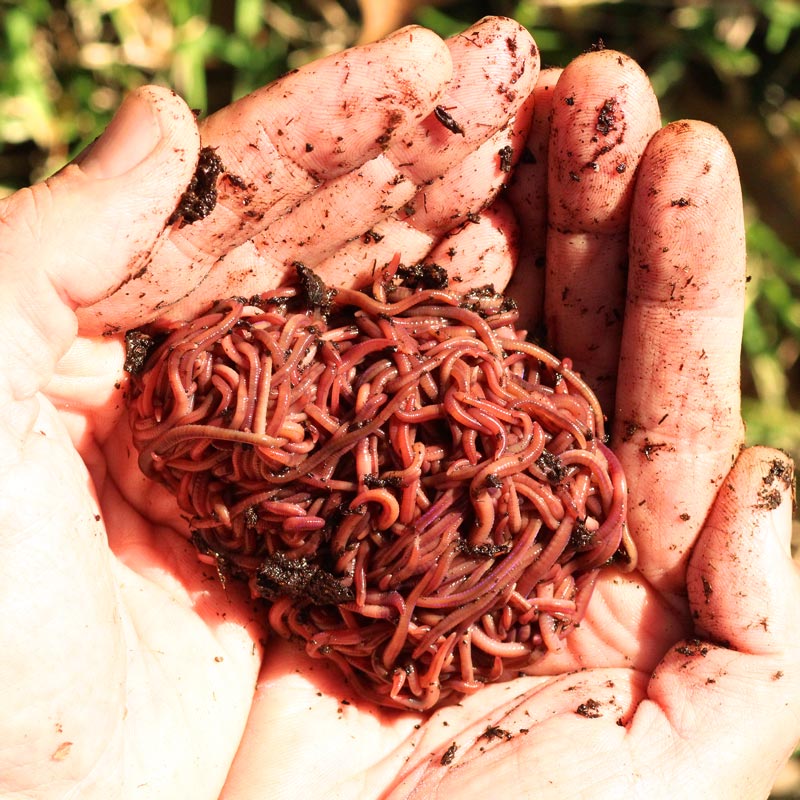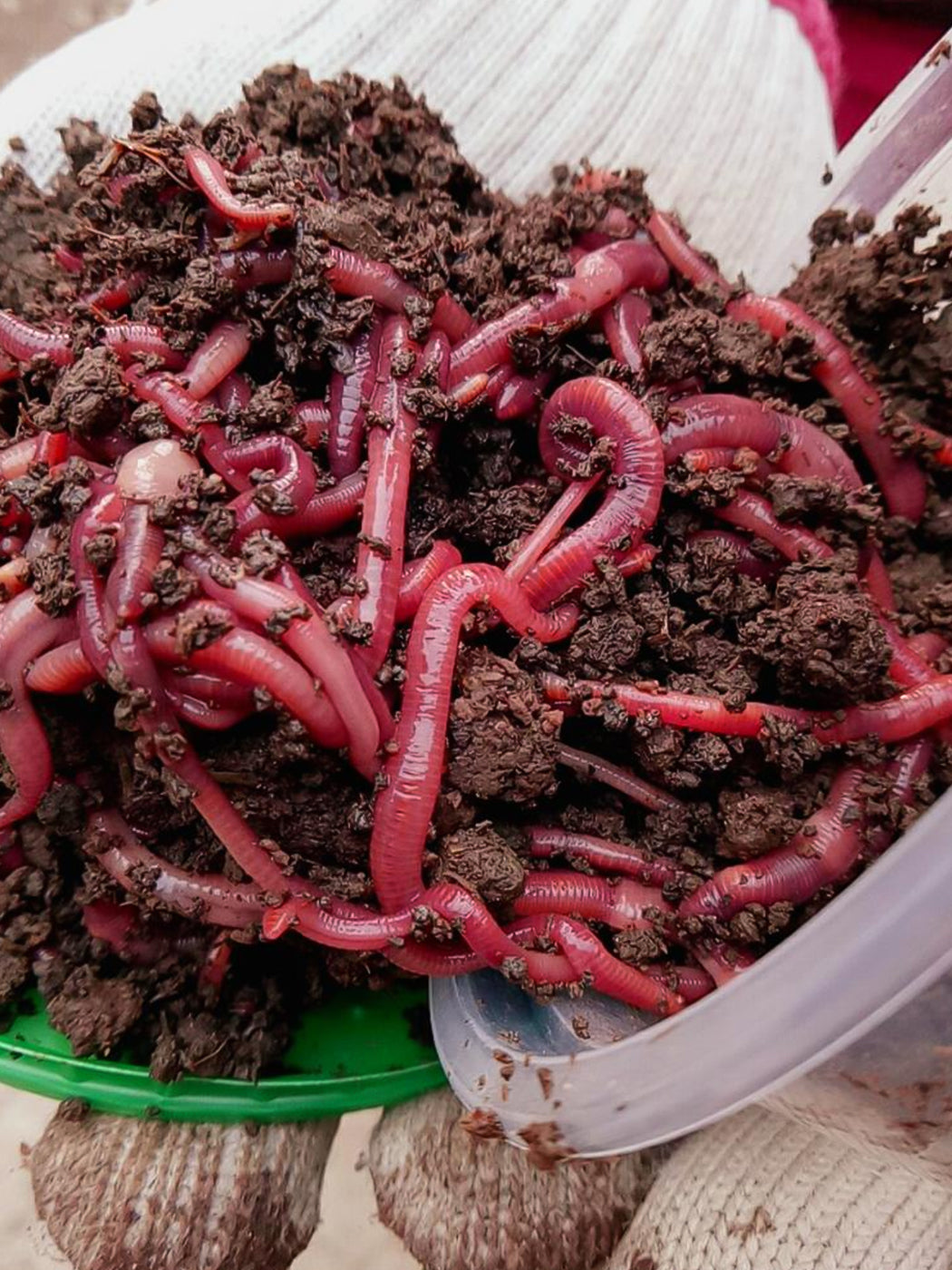Unlock the Secrets of Red Wigglers: Your Overview to Composting Success
The assimilation of red wigglers right into composting techniques offers a substantial possibility for boosting dirt wellness and advertising sustainability. These microorganisms are not just reliable recyclers of natural waste; they use a myriad of benefits that can change garden management. Recognizing their demands and actions is critical for maximizing their capacity, from establishing a suitable worm bin to feeding them the right products. As we discover the necessary parts of successful vermicomposting, one might ask yourself exactly how these small creatures can bring about an extra lively and productive garden environment.

What Are Red Wigglers?
Belonging To North America, they are usually found in decomposing leaves and compost heap, where they play an important duty in nutrient recycling. Their adaptation to residing in a wet, aerobic atmosphere allows them to consume big amounts of natural waste, simplifying into nutrient-rich spreadings that boost soil wellness.
Red wigglers recreate swiftly, with a solitary worm efficient in creating a number of cocoons weekly, each containing multiple hatchlings. This fast recreation price adds to their effectiveness in composting operations. They like temperature levels between 60 ° F and 80 ° F, and their task level increases dramatically within this range, further helping in the decay procedure. Recognizing the biology and behavior of red wigglers is necessary for optimizing their possibility in composting applications.
Benefits of Using Red Wigglers
Utilizing the power of red wigglers in composting offers many advantages that boost dirt wellness and advertise sustainable waste administration. These amazing microorganisms efficiently break down raw material, changing cooking area scraps and backyard waste right into nutrient-rich vermicompost. This completed item is exceptionally beneficial for plant development, as it boosts soil structure, increases dampness retention, and boosts nutrition availability.

Establishing Up Your Worm Bin
Creating an efficient worm container is a straightforward procedure that can significantly improve your composting initiatives. Worm containers can be made from plastic storage containers, wood boxes, or readily available worm bins.
Following, prepare the bedding material, which serves as the worms' environment. A mix of shredded paper, cardboard, and coconut coir functions well, providing a comfortable atmosphere for the worms. Goal for a bed linens deepness of about 4-6 inches. Moisten the bed linen lightly, guaranteeing it appears like a wet sponge without excess water merging near the bottom.

Feeding Your Red Wigglers
To make sure the health and performance of your red wigglers, it is crucial to supply them with a balanced diet plan that meets their dietary needs. Red wigglers thrive on a diverse array of natural materials, which not just supply essential nutrients but additionally advertise effective composting.
Start by integrating kitchen scraps such as veggie peels, fruit cores, and coffee grounds. Prevent citrus fruits, onions, and garlic, as these can be detrimental to worm health and wellness. Additionally, present shredded paper, cardboard, and completely dry fallen leaves to create a well-aerated atmosphere.
Feeding regularity ought to be checked; typically, worms can eat half their body weight in food weekly. It is important to stay clear of overfeeding, as excess food can result in undesirable smells and attract pests. An excellent practice is to add food in tiny quantities, permitting worms to process it prior to presenting much more.
Preserving dampness levels is likewise crucial; the bedding ought to perspire yet not soggy. Last but not least, make certain to frequently examine the temperature level and pH levels of the bin to guarantee an ideal setting for your red wigglers, inevitably enhancing their composting effectiveness.
Harvesting and Utilizing Compost
A successful composting process with red wigglers finishes in the abundant, dark compost known as vermicompost, which can considerably enhance dirt health and plant growth. Collecting this nutrient-dense product usually happens every three to 6 months, depending upon the size of your system and the quantity of organic matter being refined.
To gather, gently different the garden compost from the worms and any undecomposed products. One efficient method entails moving the contents of the container to one side and including fresh bed linen and food to the vacant area, encouraging the worms to move. After a few days, the garden compost can be gathered from the contrary side.
It is necessary to use vermicompost appropriately to optimize its benefits. It this can be utilized as a top clothing for yard beds, blended right into potting soil, or made into a nutrient-rich fluid fertilizer referred to as "worm tea." This application approach assists to supply vital nutrients straight to plant roots, advertising healthier development. By incorporating vermicompost into your gardening program, you not just recycle natural waste but likewise develop a flourishing ecological community that supports sustainable horticulture practices.
Verdict
In summary, red wigglers act as outstanding allies in composting initiatives, transforming natural waste into nutrient-rich vermicompost (Red Wiggler Express). Their special organic characteristics and efficient waste processing abilities add dramatically to lasting gardening practices. By comprehending the optimum problems for their environment, feeding needs, and garden compost harvesting techniques, gardeners can enhance soil health and promote plant vitality. Embracing vermicomposting not only minimizes land fill waste yet additionally cultivates an extra eco liable strategy to horticulture and source monitoring.
Comments on “Take Care of Your Lawn with the Best Products from Lake Hickory Bait”